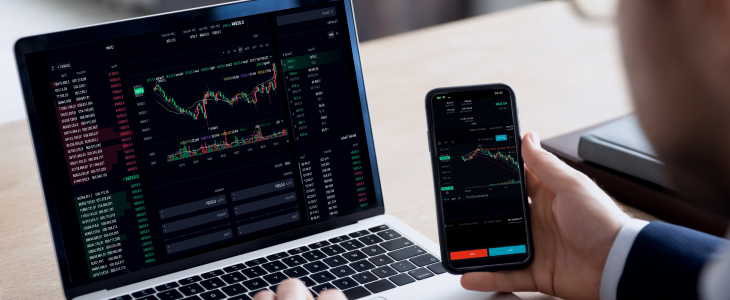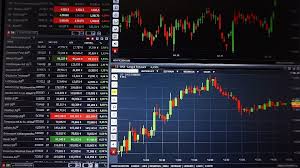
Forex Trading for Dummies: A Beginner’s Guide
Welcome to the exciting world of forex trading! If you’re a complete beginner and looking to understand the basics of trading currencies, you’ve come to the right place. This article will break down the essential aspects of forex trading in a simple and straightforward manner. For those in Uzbekistan, check out the forex trading for dummies Best Uzbek Brokers to get started on your trading journey.
What is Forex Trading?
Forex trading, or foreign exchange trading, involves buying and selling currencies to profit from changes in their value. The forex market is the largest financial market in the world, with a daily trading volume exceeding $6 trillion. Unlike stock markets, forex trading occurs 24 hours a day, five days a week, making it accessible for traders across the globe.
Understanding Currency Pairs
In forex trading, currencies are traded in pairs. Each pair consists of a base currency and a quote currency. For example, in the currency pair EUR/USD, the euro (EUR) is the base currency, and the US dollar (USD) is the quote currency. The price of this pair indicates how many US dollars are needed to purchase one euro.
Currency pairs are categorized into three types:
- Major pairs: These include the most traded currencies, such as EUR/USD, USD/JPY, and GBP/USD.
- Minor pairs: These are less commonly traded and do not involve the US dollar, e.g., EUR/GBP or AUD/NZD.
- Exotic pairs: These pairs consist of one major currency and one currency from a developing nation, e.g., USD/TRY (Turkish Lira).
What Moves Currency Prices?
Currency prices fluctuate based on supply and demand, influenced by various factors, including:

- Economic indicators: Reports on employment, GDP, inflation, and consumer spending can impact the value of a currency.
- Political stability: Countries with stable governments are more attractive to investors, boosting their currency’s value.
- Interest rates: Central banks control interest rates, which can affect currency value. Higher interest rates offer lenders a higher return relative to other countries, attracting foreign capital and increasing currency value.
How to Start Trading Forex?
As a beginner, follow these steps to start your forex trading journey:
- Educate Yourself: Before you dive in, take the time to understand forex concepts, terminology, and trading strategies. There are plenty of resources available, from books to online courses.
- Choose a Reliable Forex Broker: Select a reputable broker with favorable trading conditions. Look for one that is regulated, offers user-friendly platforms, and provides good customer support.
- Create a Trading Account: Open a demo account to practice trading without risking real money. Most brokers offer demo accounts to help beginners get a feel for the trading environment.
- Develop a Trading Strategy: A solid trading strategy is essential. This should include your risk tolerance, time commitment, and profit goals. Consider different strategies like day trading, swing trading, or scalping.
- Start Trading: After gaining confidence from practicing on a demo account, you can start trading with real money. Start small to minimize risk while you gain experience.
Important Trading Concepts
Familiarize yourself with these key concepts to enhance your trading knowledge:
1. Leverage
Leverage allows traders to control larger positions with a smaller amount of capital. While it can amplify profits, it also increases the risk of losses. For instance, with a leverage of 100:1, you can control $100,000 with just $1,000.
2. Pips
A pip (percentage in point) is the smallest price move that a given exchange rate can make. Most currency pairs are quoted to four decimal places, with one pip equal to a movement of 0.0001. Understanding pips helps in calculating profits and losses.

3. Spread
The spread is the difference between the buying (ask) price and the selling (bid) price of a currency pair. A narrow spread means lower trading costs, making a broker more favorable.
4. Stop-loss Orders
A stop-loss order is used to limit losses by automatically closing a position if it reaches a certain price. This tool is vital for risk management and helps protect your capital.
Common Mistakes to Avoid
Here are some common pitfalls experienced traders encounter, especially beginners:
- Overleveraging: While leverage can enhance returns, it can equally amplify losses. Use leverage cautiously and only as per your risk management strategy.
- Failing to Stick to a Plan: Many traders deviate from their trading plan due to emotions. Discipline and consistency are key to successful trading.
- Neglecting Market Analysis: Always analyze the market before executing trades. This can include technical analysis, fundamental analysis, or a combination of both.
- Being Unrealistic: Setting overly ambitious profit goals can lead to disappointment. Set realistic and achievable targets.
Final Thoughts
Forex trading can be a rewarding venture if approached with the right mindset and education. As a beginner, it’s essential to take your time, manage risk, and continuously seek knowledge. Remember, every trader started as a beginner, and with patience and practice, you can achieve success in forex trading.
By understanding the essentials, having a solid trading strategy, and maintaining discipline, you can navigate the forex market with confidence. Happy trading!

